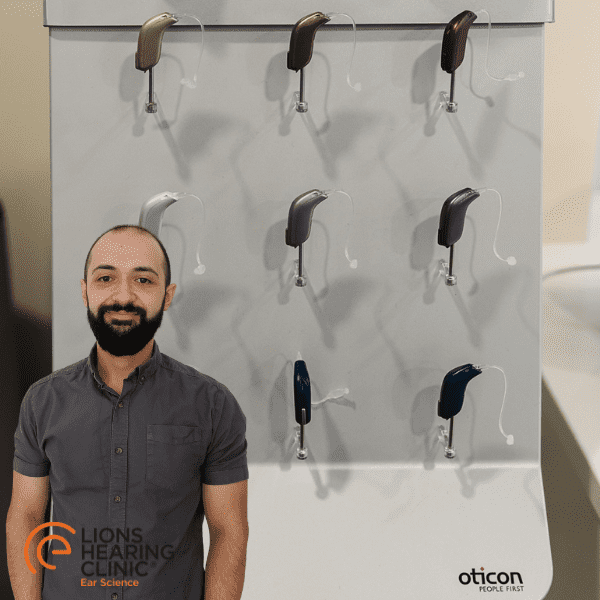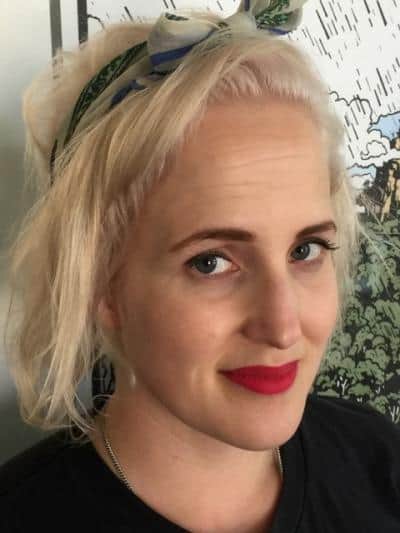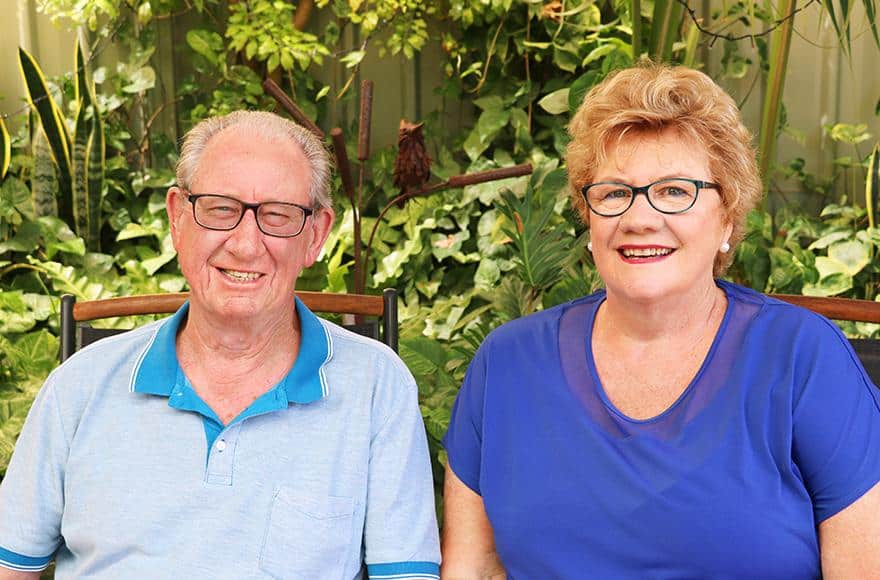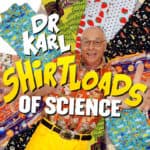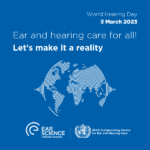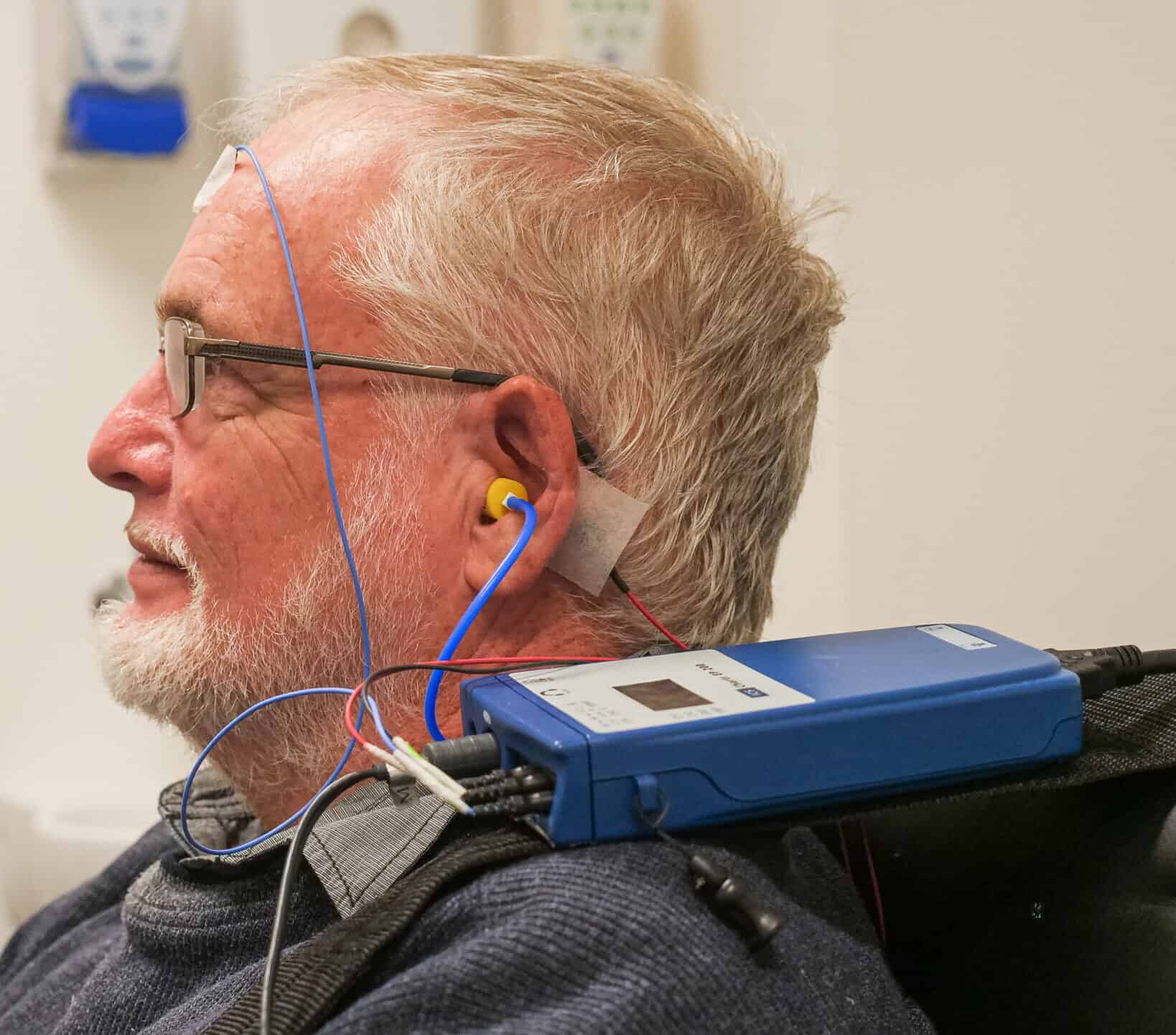Richard Treasure joined the Navy in 1963, and during the next 12 years, he served on seven ships and three establishments. “I first noticed my hearing difficulties during the Vietnam War. I was on a Destroyer and walked out on the upper deck just as a four-inch gun fired right above my head. It was then that the tinnitus started,” said Richard.
“My hearing loss affected my life in many ways, especially at restaurants with all the background noise,” said Richard. Kathryn May, Qualified Audiologist, explains, “many individuals with sensorineural hearing loss often hear muffled speech, they often suffer from tinnitus (or ringing in the ears), and many of my clients have difficulty hearing in background noise or have clarity of speech problems”.
“I couldn’t hear human
voices, it was like that for
years and years.”
One incident, in particular, was the turning point for Richard and Allison. “We have a caravan, and Richard was reversing the van. I was yelling at him to stop. But he couldn’t hear me. So, in the end, I had to jump out the way because he would have run me over. It was quite frightening,” said his wife Allison as she reflected on that pivotal moment when they both realised that Richard’s untreated hearing loss was a real safety issue for both of them.
His hearing journey began with Lions Hearing Clinic in 2015 when Richard was fitted with a hearing aid. His hearing loss progressed over the next 10 years, and he was diagnosed as profoundly deaf in his left ear, which rendered the hearing aid unhelpful in that ear.
Untreated hearing loss
is associated with an
increased risk of dementia.
Under the DVA hearing services for veterans’ program, he qualified for a fully subsidised cochlear implant to restore the hearing he had lost in the Vietnam War. “It was fabulous. We didn’t have to do anything. The Lions Clinic did all the paperwork with DVA and made all the arrangements..”
“Professor Marcus Atlas is truly amazing as my surgeon. I thought I might be too old for cochlear implant surgery, but he answered all my concerns, and the surgery was actually pretty easy. There really wasn’t too much pain after the surgery,” said Richard.
We know that only about 8-10 per cent of people who need a cochlear implant get one. Ear Science Institute Australia runs the most extensive state cochlear implant program to increase awareness of these life-changing devices and make the technology accessible to as many West Australians as possible.” said Ear Science Surgeon-Scientist Professor Marcus Atlas.
A cochlear implant is a sophisticated electronic medical device that takes treating hearing loss to the next level, bypassing damaged sensory hair cells within the cochlea (inner ear) to directly stimulate auditory nerves.
A cochlear implant consists of two parts – the external sound processor, which collects and processes the sound, converting it into a radio frequency signal that is sent through the skin and the internal implant, which consists of the receiver-stimulator and electrode, which is inserted into the cochlea and provides electrical stimulation to the auditory nerve directly. Which, in turn, takes the sound to the brain.
Richard’s hearing aid is paired with his cochlear implant, which gives him hearing in both ears. Dr Cathy Sucher from Ear Science Implant Clinic explains that “our ears work best when they work as a team, the brain needs both ears for optimum understanding of speech, and spatial awareness of the direction sounds are coming from.”
“My life has truly changed since I got my cochlear implant.” said Richard, “It took about 12 months to really see the full benefit of the cochlear implant on my hearing. Allison helped me with the rehabilitation – in the car we would practice the sounds and phrases I had lost, so I could cheat and lip-read!”
“It was the best decision he made,” said Allison. “Now he can not only hear people, he actually understands them. He joins in at the dinner table conversations with the family when they visit every fortnight for dinner,” she said. “You can’t join in a conversation that you can’t hear,” mentioned Richard.
“The first few months, he was really worried about losing it,” said Allison. “But now he is very confident going out and about. I no longer have to give him a nudge if someone is trying to talk with him or have to talk for him.”
“Your hearing won’t heal itself, but we can help.” said Kathryn May, Qualified Audiologist at Lions Hearing Clinic in ANZAC House. “Hearing implants are truly life-changing devices. They help people hear sounds they no longer hear with their hearing aids. Good hearing gives people confidence and connects them with loved ones. It is excellent that DVA provides funding for these devices for people like Richard.”

